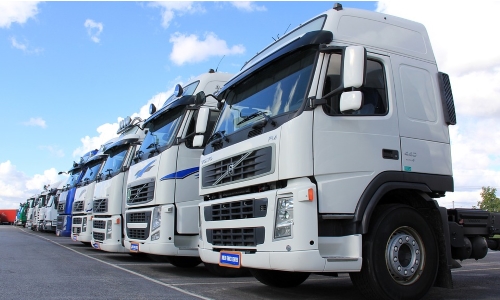This past summer has definitley been a quiet one in the road freight transport sector, however a buzzing autumn is coming forward. Are we going to see the long-awaited reforms that could bring protectionism in or will the sector stick with the actual system based on deregulation?
The debate we have been able to witness in recent months is the result of the philosophical clash between those who advocate greater liberalization and those who ask for a brake on the globalization processes of the global economy. Let’s look at the current situation in Europe, trying to figure out the context from which the discussion comes and how it has recently come alive.

WHERE DOES THIS START?
The position of those who favors liberalization finds its basis in Title VI of the Treaty of Lisbon, in particular Article 91: the European Union’s objective for the road haulage sector is “to create a liberalized market for the road transport service by opening up access to the profession by eliminating all restrictions on the carrier due to its nationality or the fact that it is established in a Member State other than that in which it is provided the performance”.
Supporters of the application of protectionist norms, on the other hand, base their thinking on the logic of defending the interests of domestic companies, limiting the activity of companies and workers from Eastern European countries benefiting from an internal situation where the cost of work is considerably lower. The Italian Minister of Transport Graziano Delrio, has recently stated that he wants to put a brake on what he calls “a liberalization without guarantees, which goes against the safety and rights of workers”.
WHAT IS IT INTENDED FOR «PROTECTION MISURES»?
Probably it would be more correct to refer to those measures aimed at countering the so-called “social dumping”, that set of rules implemented by a state in order to counter the sale of foreign goods or services at prices lower than those of the internal market.
In recent times, this term has been linked to the concept of limiting “unfair” competition by foreign companies and workers. For this reason, it is associated with the concept of protectionism, a political and economical vision that tends to protect the national productive activities through state economic interventions, hindering competition from foreign countries.
As far as the transport sector is concerned, those result in the application of regulations such as the introduction of the minimum wage, the prohibition of long rest in the cab, stricter requirements for accessing the profession or the creation of national electronic registers.
WHAT DOES THE FUTURE LOOK LIKE IN EUROPE TODAY?
Many people has started to focus on the possibility for a sovereign state to limit the freedom of citizens of other EU member states, while there are laws that provide for the free movement of men and goods. Some member states of the European Union have put a brake on the phenomenon of deregulation by introducing protectionist measures. This new line was captained by France, followed by more or less similar measures adopted in Germany, Austria and Belgium, among many.
In this regard, Ramón Valdivia of ASTIC (the association defending the interests of the international road haulage sector in Spain) states that: “It often seems that we forget about the good that has been done since countries such as Germany, France or Belgium have put in place clearly unilateral and protective measures designed to slow down the development and activity of business foreign countries are themselves members of the European Union”.
The opinion of the Spanish association is therefore that the construction of the European Union arises from the will to embrace liberalization. That is why we have worked to break the borders and create a common market. “Thanks to the single European market we have been able to overcome the technical, legal and bureaucratic barriers that slow down trade and the free movement of goods and people, resulting in the ability to expand the business of our businesses, while enjoying more competitive costs with a significant increase in the supply to the consumer”.
In Spain, in 2016 only, there were record figures with a growth rate of 2.11% over the previous year, for an astonishing total of €260 billion, the origin of which lies in the export philosophy typical of Spanish companies. “While we are witnessing the biggest crisis in the European economy of the last sixty years, it is equally true that the transport sector can look at it from a privileged point of view, as it is a strategic and transversal activity that has always been exploited and enjoyed the benefits of the European integration”.
In conclusion, Ramón Valdivia argues that “with the approval of these legislative measures we are entering a swampy soil that will fragment the European Union map into an area where competitiveness and efficiency are crucial, especially if we look at the industrial, tourist and commercial structure of the continent. I could be wrong, but the battle between protectionism and globalization is going to the former”.
 English
English Español
Español Deutsch
Deutsch Français
Français Italiano
Italiano Português
Português Polski
Polski Wtransnet Blog Wtransnet Blog: Transport and Logistics News in Europe.
Wtransnet Blog Wtransnet Blog: Transport and Logistics News in Europe.
